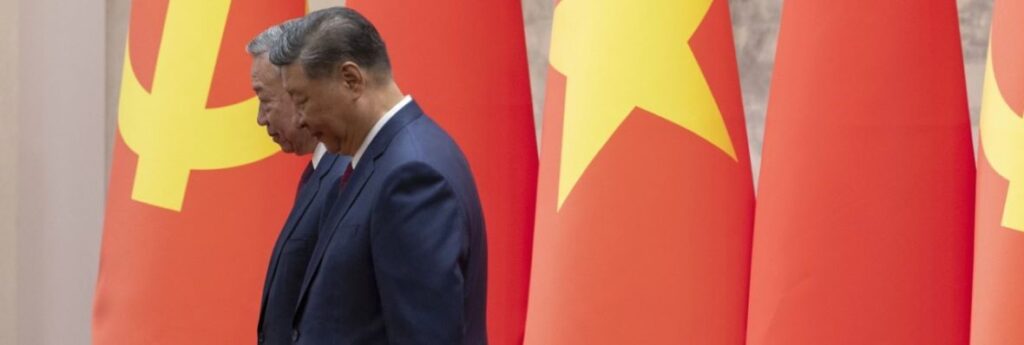China promised tiny tourism-dependent Palau a million tourists a year if the country would only drop its allegiance to Taiwan, says the country’s President Surangel Whipps Jr. But the Chinese tactic of “weaponizing” tourism saw its visitors to the Pacific archipelago suddenly decline by half when Whipps Jr. declined the offer.
Palau, along with Tuvalu and the Marshall Islands, is one three Pacific nations to recognize Taiwan as an independent democracy – viewed as a snub by Beijing, which asserts it is part of China. Taipei’s allies in the Pacific have dwindled from six countries in 2019.
Whipps said in a recent interview that in 2020, while he was running for his current post, the Chinese ambassador to a neighbouring country pledged to flood his nation of 20,000 people with a million visitors if he capitulated on the country’s stance.
“That continues to be the overture. They say, why are you torturing yourselves? Just join us and the sky’s the limit,” he said. “(But) we don’t need a million tourists. It’s not always about how much money we get.”
His stance is vanishingly rare amid Pacific island nations – some struggling to sustain themselves and feeling overlooked by Western powers while their backyards are increasingly the settings for some of the world’s most potent contests for influence. Amid intensifying conflict over ocean territory, resources and political sway, Beijing’s pressure on the three hold-out countries was increasing, analysts said.
China’s penalties for Palau’s intransigence are not new, but they have escalated in the months leading up to November’s election in which Whipps will seek another term as leader, he said. In May, he blamed China for a major cyberattack on Palau in which 20,000 government documents were stolen. The claim was unproven, Whipps said, but no other motive or actor had emerged.
Earlier that month, Palau tourism industry representatives were denied visas to enter Macau for a lucrative international industry conference. Then reports appeared in China’s state media and on an official WeChat channel in June, warning tourists of an increase in safety issues for Chinese visitors to Palau. The remarks urged citizens to be cautious when travelling there.
Whipps rejected the reports of security problems but said the claims had stuck – visitor numbers from China halved in 2024, now down to 30% of its tourists. Once, 70% of Palau’s visitors came from China, but the country tried to diversify its market after Beijing unofficially blocked its citizens from visiting in 2017.
“Palau has found itself in a position where it relies on Chinese tourists for income,” said Mihai Sora, Director of the Pacific Islands Program at the Lowy Institute. “This is a tap China can quite easily turn on and off – and it does.”
Support comes from other quarters, however. Unlike most Pacific nations, Palau, a republic that has been independent since 1994, holds close ties to the United States in a free association agreement. Washington provides aid and defense support to Palau and its citizens can live and work in the US.
And Palau has instead strengthened its ties with Taiwan and Japan, which along with Australia have supplied diversity to a tourism market still rebounding from the coronavirus pandemic. In May, a non-stop airline route opened between Palau and Brisbane.
Recent elections in the Pacific have proved fertile ground for bolstering ties with China. In the first round of national voting this month in Kiribati – which cut ties with Taiwan in 2019 – the Chinese embassy announced on polling day that Kiribati seafood could now enter China’s market.
As November’s Palau election approaches, challenges from long-time pro-Beijing voices in Palau are growing once more, Whipps said. However, he said the campaign would be fought not on foreign influence but on the merits of tax reform.
“We’ve always had the belief that we should be friends to all and enemies to none,” Whipps said. “Our relationship to Taiwan shouldn’t be questioned by anybody.”
If you enjoyed or found this story useful, we’d appreciate if you would forward it to a colleague or friend who may also enjoy it. If, on the other hand, a friend shared it with you, welcome! You can get all the latest travel news and reviews from Travel Industry by simply clicking HERE.

